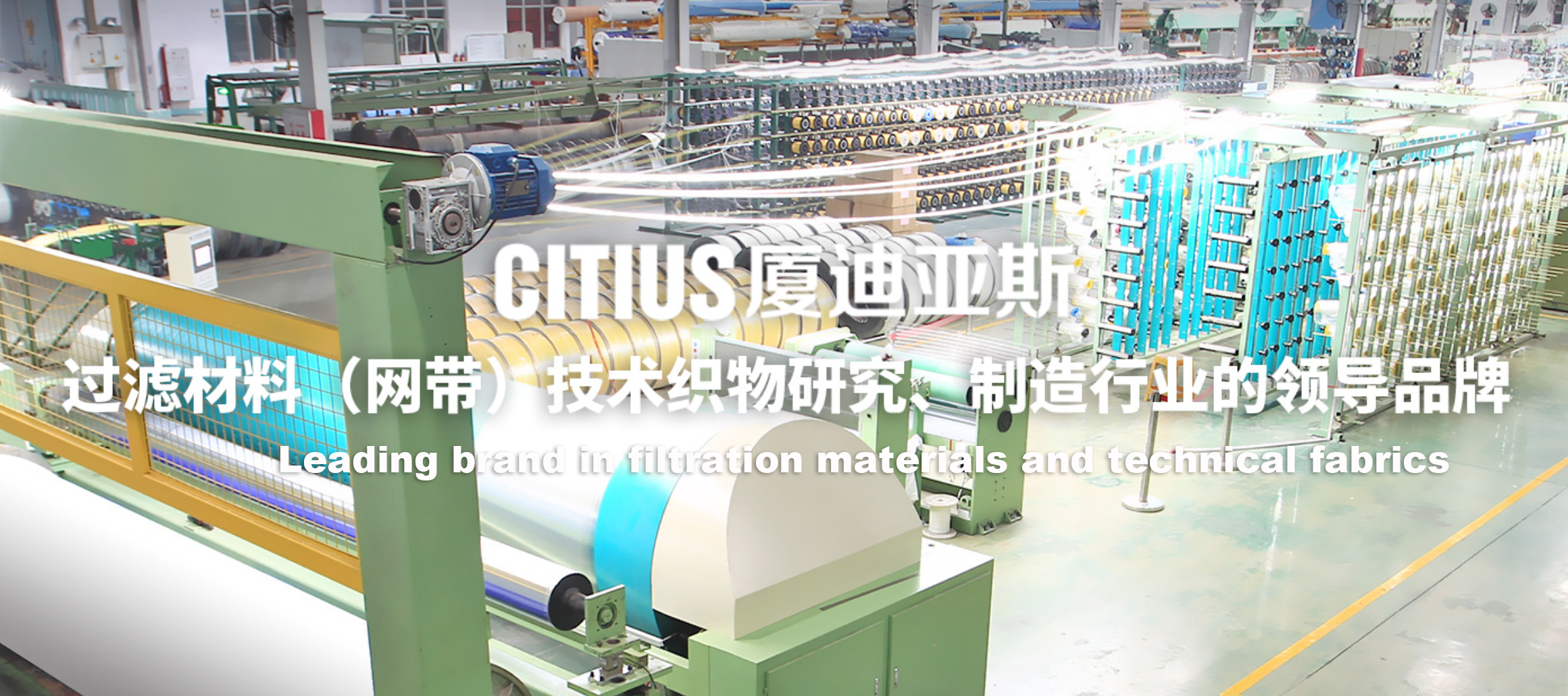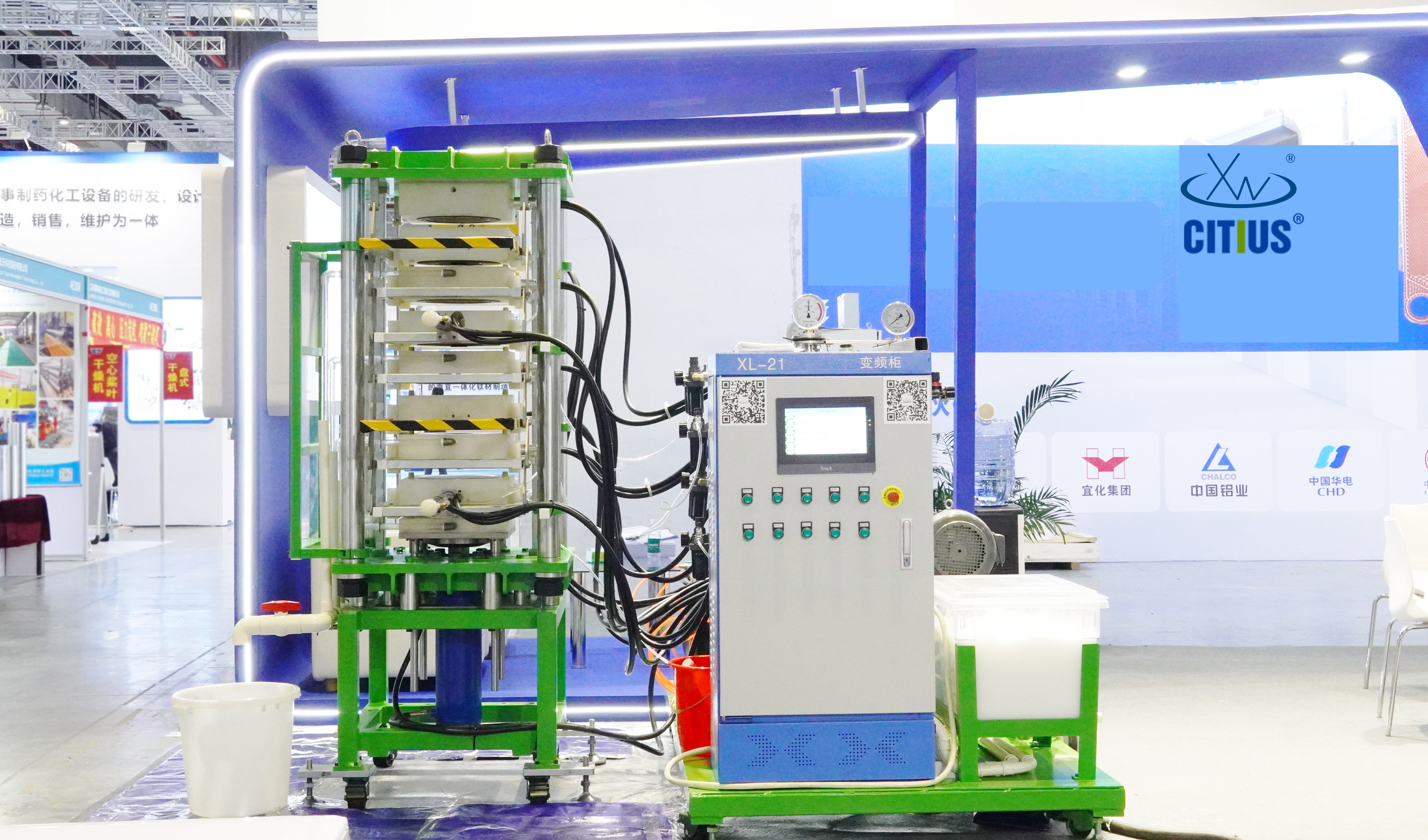High-Temperature Resistant Drying Mesh Belts and Filter Cloth: Key Material Solutions in Multi-Industry Drying Systems
Release time:
2025-06-12
In industries such as pharmaceuticals, food, and chemicals, the product drying process is not only a core step to improve quality and stability, but also directly affects production line efficiency, energy consumption, and safety standards. As one of the core components of drying equipment, high-temperature resistant drying mesh belts and filter cloths are increasingly becoming a key focus for enterprises when upgrading drying technology.
This article will delve into the advantages and typical application scenarios of Xiamen Xadiyas (Citius) Filtration Material Technology Co., Ltd.'s drying nets and conveyor belt filter cloths in applications such as vacuum continuous solid dryers, hot air drying equipment, and conveying systems, helping more industry users master high-performance filter cloth selection strategies and optimization paths. 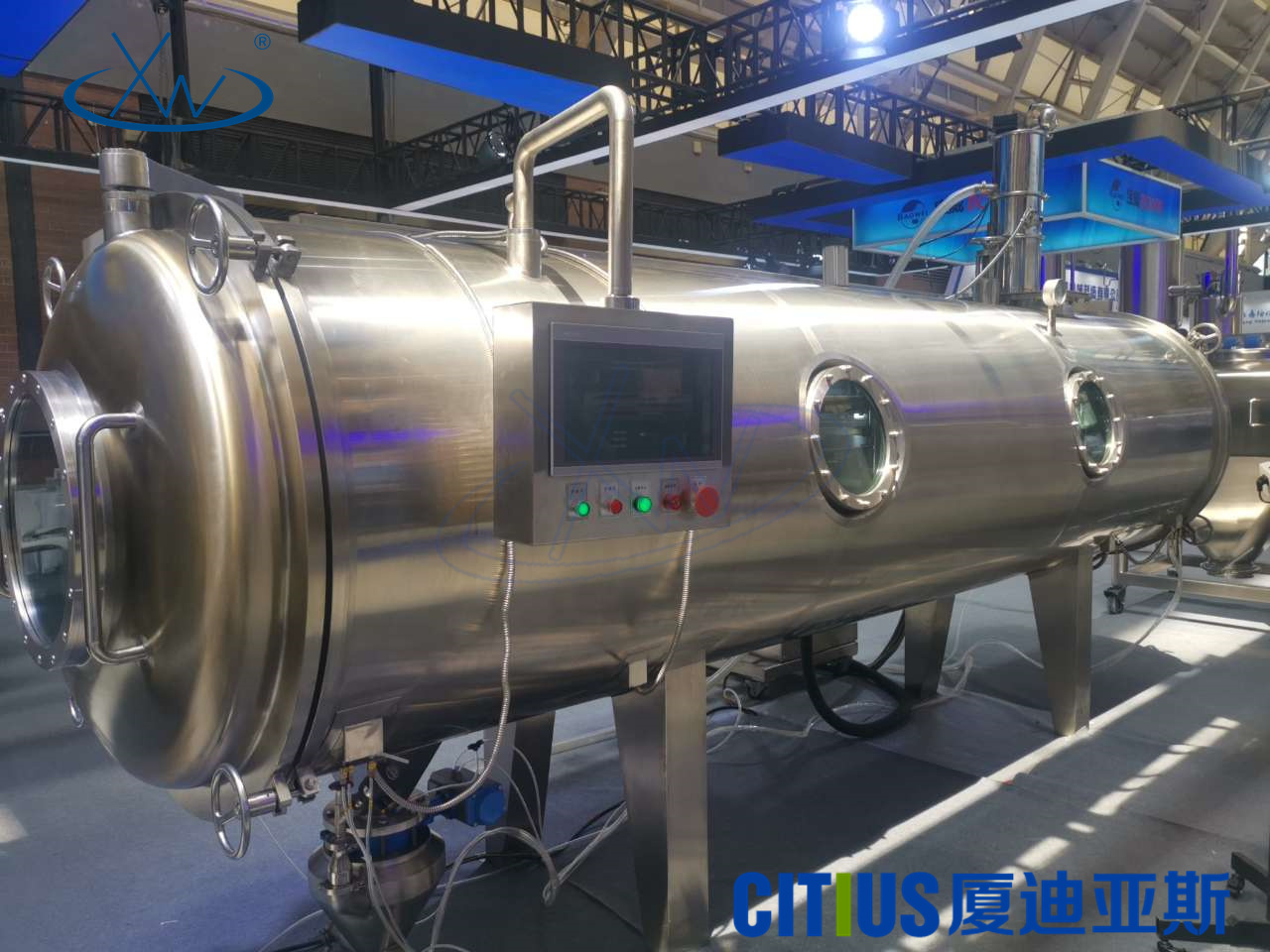
I. Core Performance: Material Evolution from High Temperature Resistance to Multi-Condition Compatibility
During the continuous operation of drying equipment, filter cloths must withstand multiple challenges such as high temperatures, acid and alkali corrosion, mechanical tension, and material adhesion. For this series of complex working conditions, high-quality drying filter cloths must meet the following performance requirements:
High temperature resistance up to 200℃ or more : Compatible with various types of equipment such as hot air drying, far-infrared drying, UV drying, and vacuum low-temperature drying;
Excellent flame retardant performance : Enhances the overall system's safety level and reduces fire risks in drying lines;
Non-stick surface : Effectively prevents material accumulation and caking, improving peeling efficiency and filter cloth service life;
Resistance to strong acids, strong alkalis, and chemical solvent corrosion : Especially suitable for special process environments such as lithium battery materials and pharmaceutical intermediates;
Food-grade certified material : Complies with food safety system standards, suitable for food lines with stringent cleanliness requirements;
These properties not only determine the material's stability but also affect the continuity of the drying process and the overall efficiency of the production line.
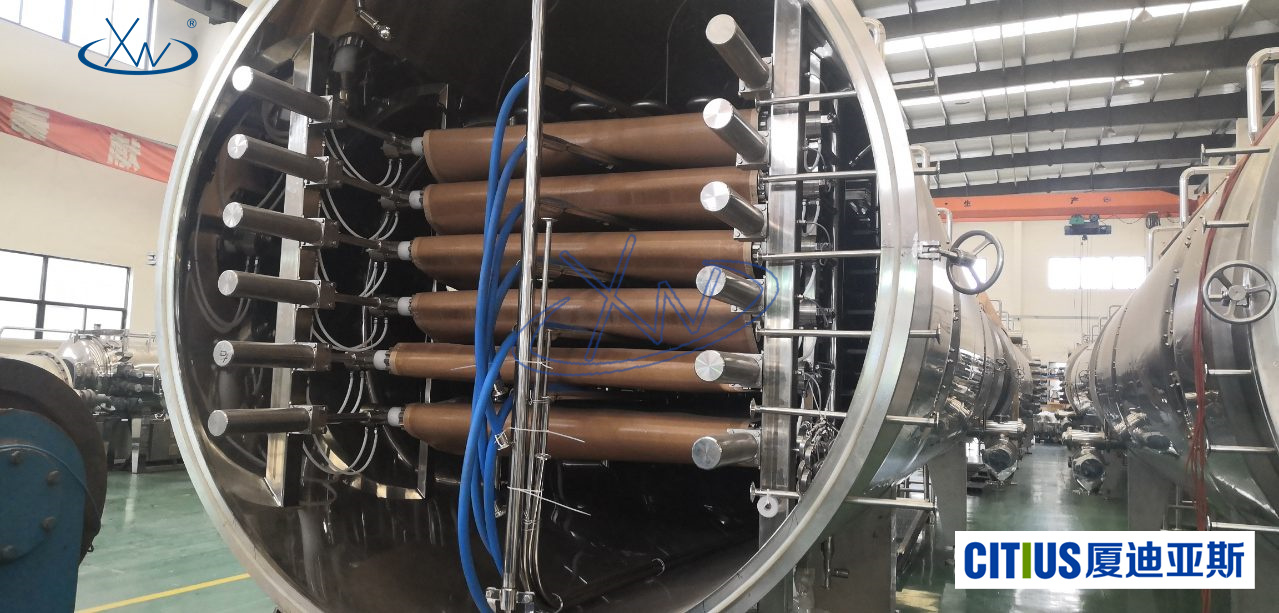
II. Analysis of Typical Application Scenarios: From Clean Pharmaceuticals to Composite Materials
1. Pharmaceutical Industry: High Cleanliness Challenges under Vacuum Low-Temperature Drying
In delicate pharmaceutical processes such as traditional Chinese medicine extraction, biological preparations, and pharmaceutical intermediates, drying equipment requires extremely high cleanliness and low-temperature humidity control capabilities. Filter cloths must exhibit very low adsorption and repeatable cleaning and regeneration properties to prevent contamination and loss of ingredients.
Applicable Equipment : Vacuum continuous dryer, vacuum belt dryer, low-temperature vacuum chamber;
Typical Materials : Traditional Chinese medicine extract paste, plant extracts, biological fermentation broth, concentrated traditional Chinese medicine granules, etc.;
Core Requirements : Efficacy protection, cross-contamination control, high-cleanliness contact surface, food-grade safety assurance;
2. Food Industry: Process Adaptation from Grain Drying to New Materials
Food processing drying mesh belts not only need to be high-temperature resistant and free from harmful precipitation but also need to adapt to the processing procedures of emerging biodegradable materials, such as plant fibers and starch-based composite materials, while maintaining flavor and nutrition.
Application Scenarios :
: Hot air continuous drying of cereals, preserved fruits, and seasonings;
: Low-temperature dehumidification and drying of food additives;
: Pre-forming drying of biodegradable materials (PLA, PBAT, etc.).
Process Challenges : Diverse materials, high thermal sensitivity, wide particle size distribution, posing higher requirements for filter cloth compatibility and peel-off properties.
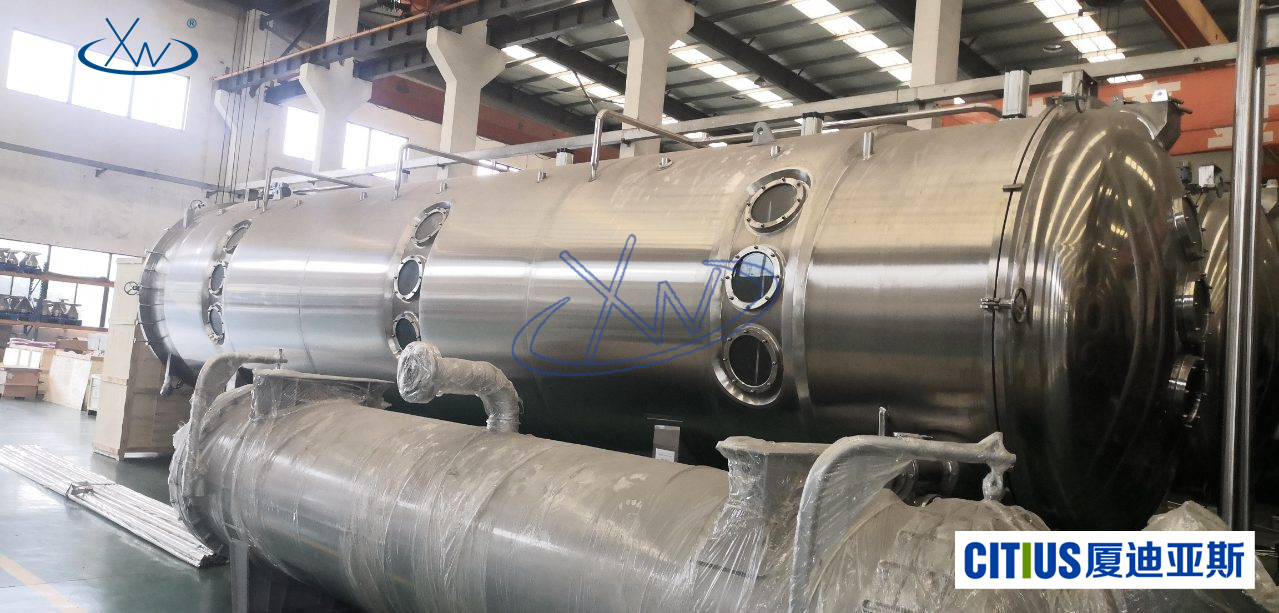
3. Chemical Industry: The Test of Material Limits by Strong Corrosion + High-Temperature Materials
In the drying of fine chemical products such as lithium phosphate, cobalt fluoride, ternary precursors, and catalysts, filter cloths must cope with the dual challenges of high temperature and chemical corrosion, maintaining stable operation for a long time.
Typical Conditions :
: Vacuum low-temperature drying of lithium battery precursor materials;
: Continuous belt drying of fine powders;
: Pre-forming dehumidification treatment of high-value-added chemical products;
Key Performance : Corrosion resistance, strong peel-off property, stable structure without deformation, low thermal expansion rate;
III. Typical Equipment and Operating Conditions: Matching Logic under Industry Differences
1. Lithium Battery Industry: Extreme Requirements for "Cleanliness + Corrosion Resistance"
Lithium battery cathode and anode materials are extremely sensitive to moisture, metal ions, and impurities, making vacuum drying systems a mainstream choice. Filter cloths must possess both corrosion resistance, high-temperature resistance, and extremely low hygroscopicity.
Applicable Materials : Lithium iron phosphate, lithium fluoride, ternary precursors, lithium carbonate, nickel-cobalt-manganese hydroxide, etc.;
Performance Requirements :
: Extremely low powder residue rate, reducing metal impurity migration;
: Adaptable to fluorinated environments, corrosion-resistant and non-deforming;
: Can be quickly cleaned and reused after long-term operation.
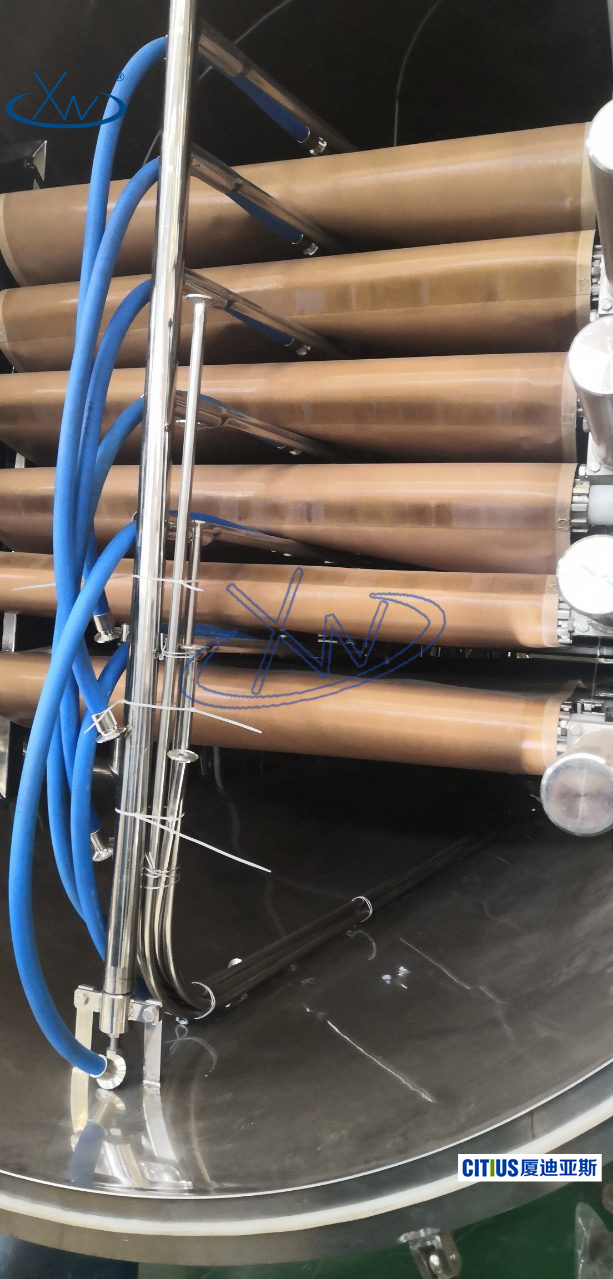
2. Pharmaceutical Industry: Special Needs for Drying Traditional Chinese Medicine Extracts/Fermentation Products
Traditional spray drying is inadequate for drying "difficult-to-dry" materials such as concentrated extracts of traditional Chinese medicine and plant pulps. A continuous drying system consisting of vacuum belt drying equipment and filter cloth has become the preferred choice for leading pharmaceutical companies.
Filter Cloth Requirements :
High cleanliness, no adsorption of active ingredients;
Easy to peel off paste, anti-coking;
Can be repeatedly cleaned and regenerated, supporting continuous operation;
Ensure drug safety, meet both food-grade and pharmaceutical-grade standards.
3. Food Industry: Dual Considerations of Nutrient Retention and Process Adaptability
Food drying processes focus on material component stability and flavor retention, placing material safety and structural stability extremely high demands on the filter cloth. In particular, the rise of environmentally friendly and biodegradable packaging materials has also increased the matching requirements for conveying and drying systems.
Typical Materials : Nutritional oatmeal, functional powder, flavor granules, starch-based biodegradable films;
Matching Logic : Flexible structure, no deformation, smooth surface for easy separation, supports high-temperature continuous operation.
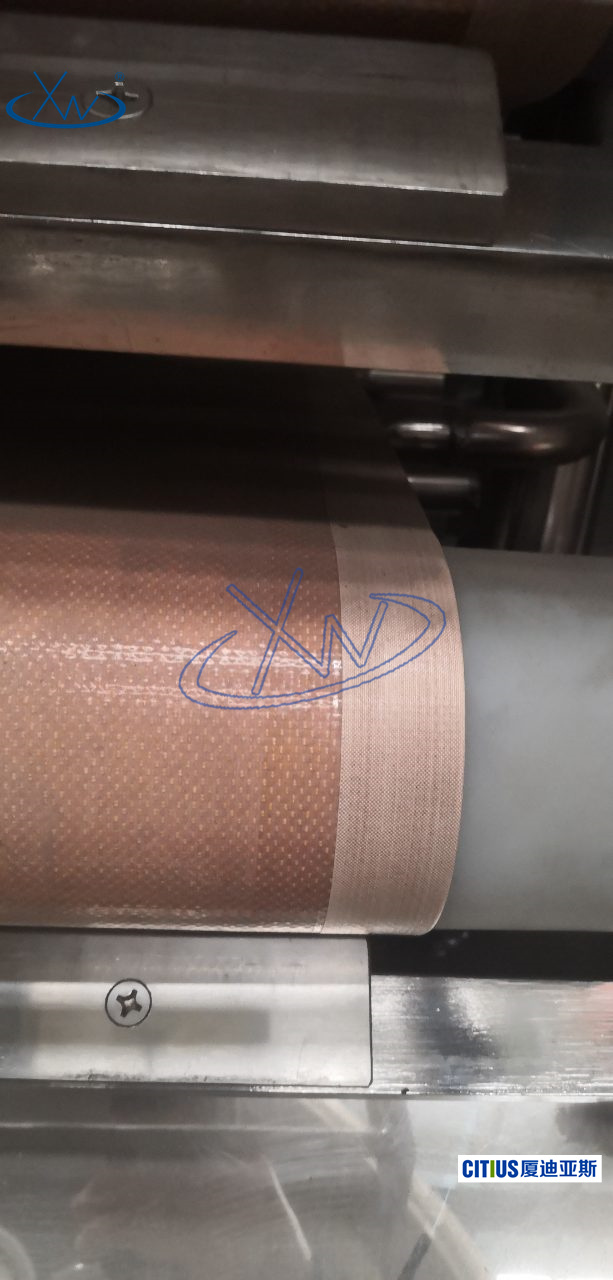
IV. Drying Needs Analysis for Typical Sub-fields in the Chemical Industry
In the drying process of high-end chemical products, filter cloths often face complex chemical environments and harsh process conditions:
Chemical Sub-field
|
Typical Materials
|
Filter Cloth Challenges and Needs
|
|---|---|---|
Chlor-alkali Series
|
Ammonium chloride, sodium hydroxide dry powder
|
Resistant to strong alkali corrosion, tensile strength, non-adhesive crystals
|
Sulfuric Acid Series
|
Copper sulfate, aluminum sulfate, cobalt sulfate
|
High temperature and strong acid resistance, anti-oxidation coating treatment
|
Ortho-para Series
|
Phthalic anhydride, terephthalic acid
|
Flammable high-temperature materials, filter cloth requires flame retardant + insulation treatment
|
Fatty Alcohol/Acid Series
|
Lauric acid, palmitic acid, sodium fatty alcohol
|
High-temperature viscous fluid, requiring high peelability and no precipitation layer
|
Especially in continuous low-temperature drying system the drying mesh often needs to meet the requirements of low thermal expansion rate, undeformed structure, and adaptability to tensioning and sealing structures to maintain stable operation of the entire line.
V. Technical Support and Customized Services
Xiamen Xadiyas (Citius) As a professional supplier of industrial filter cloth and belt solutions, Filtration Materials Technology Co., Ltd. not only provides standard products, but also provides the following support for users' special scenarios:
Material selection and structural optimization suggestions;
Non-standard size customization, various interface methods;
Anti-stick treatment, corrosion-resistant coating, edge reinforcement;
Application testing services and replacement cycle optimization suggestions;
Fast delivery support and long-term cooperation guarantee.
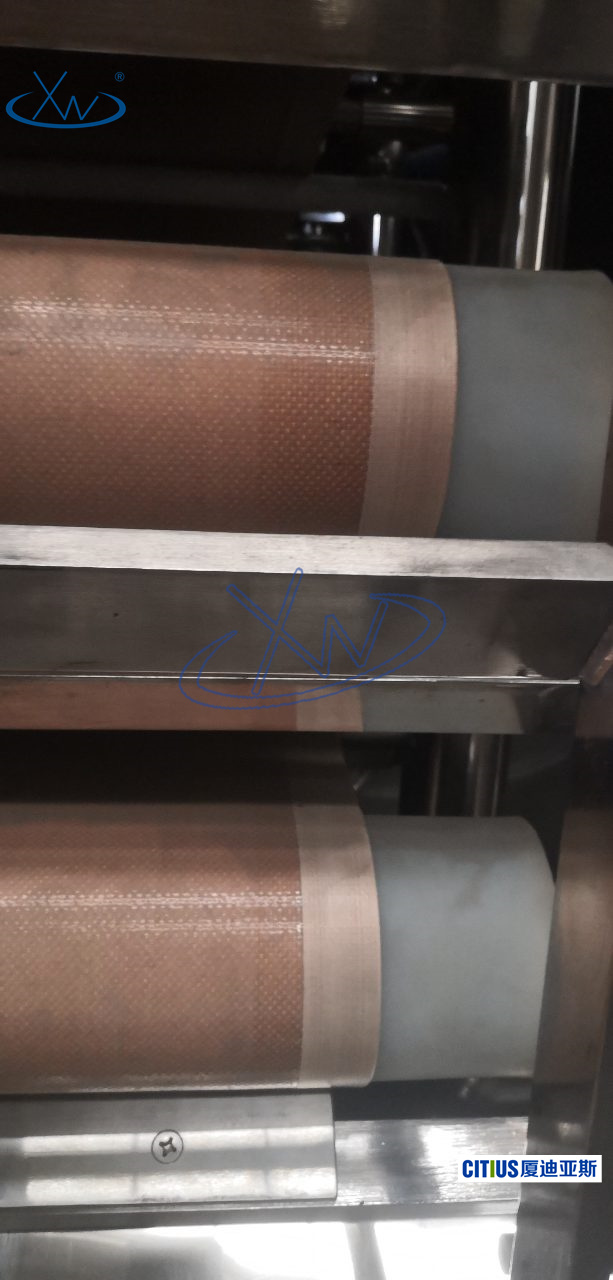
VI. High-temperature drying mesh belts and filter cloths: typical customers and cooperating industries
Our products are widely used by leading companies in the following industries:
Lithium battery material factories (lithium phosphate, lithium hydroxide drying lines);
Biopharmaceutical groups (drying of traditional Chinese medicine extracts);
Food processing enterprises (drying of grains, candied fruits, nutritional powders);
Fine chemical enterprises (catalysts, auxiliaries, additives, etc.);
Printing and dyeing industry (UV glazing, flocking drying lines);
Packaging and clothing industry (shrinkage setting conveying system);
Conclusion: A More Efficient, Safer, and More Durable Choice
In an era of industry diversification and material innovation, choosing a suitable drying mesh/filter cloth is not only related to production line efficiency, but also to product safety, equipment life, and corporate competitiveness. We will continue to use high-quality raw materials, precise weaving technology, and rapid response services to help users in various industries achieve high temperature resistance, high cleanliness, high stability drying solutions.
